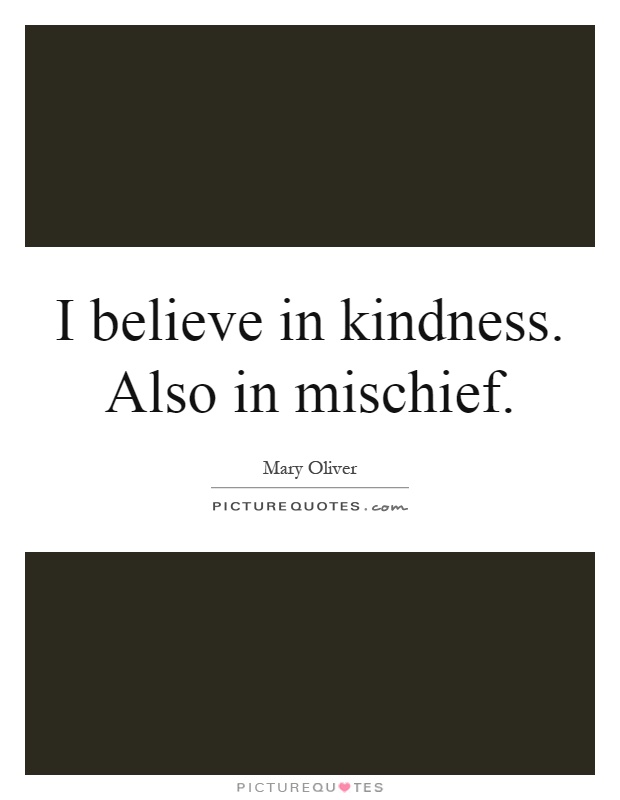I believe in kindness. Also in mischief

I believe in kindness. Also in mischief
Mary Oliver, the beloved poet known for her profound observations of nature and the human experience, often explored themes of kindness and mischief in her work. In her poetry, Oliver celebrated the beauty of the natural world and the importance of compassion and empathy towards all living beings. She believed in the power of kindness to heal and uplift, but she also recognized the value of mischief and playfulness in bringing joy and spontaneity to life.Oliver's belief in kindness was evident in her deep reverence for the natural world. She saw the interconnectedness of all living things and understood the importance of treating each creature with respect and compassion. In her poem "Wild Geese," Oliver writes, "You do not have to be good. / You do not have to walk on your knees / for a hundred miles through the desert, repenting. / You only have to let the soft animal of your body / love what it loves." This message of self-acceptance and kindness towards oneself and others resonates throughout her work, reminding us of the importance of gentleness and understanding in a world that can often be harsh and unforgiving.
But Oliver also believed in the value of mischief and playfulness in life. In her poem "The Summer Day," she asks, "Tell me, what is it you plan to do / with your one wild and precious life?" This question challenges us to embrace the spontaneity and joy of life, to not take ourselves too seriously, and to find delight in the small moments of mischief and fun. Oliver understood that laughter and playfulness are essential to our well-being, and she encouraged us to find moments of lightness and humor in the midst of life's challenges.












 Friendship Quotes
Friendship Quotes Love Quotes
Love Quotes Life Quotes
Life Quotes Funny Quotes
Funny Quotes Motivational Quotes
Motivational Quotes Inspirational Quotes
Inspirational Quotes